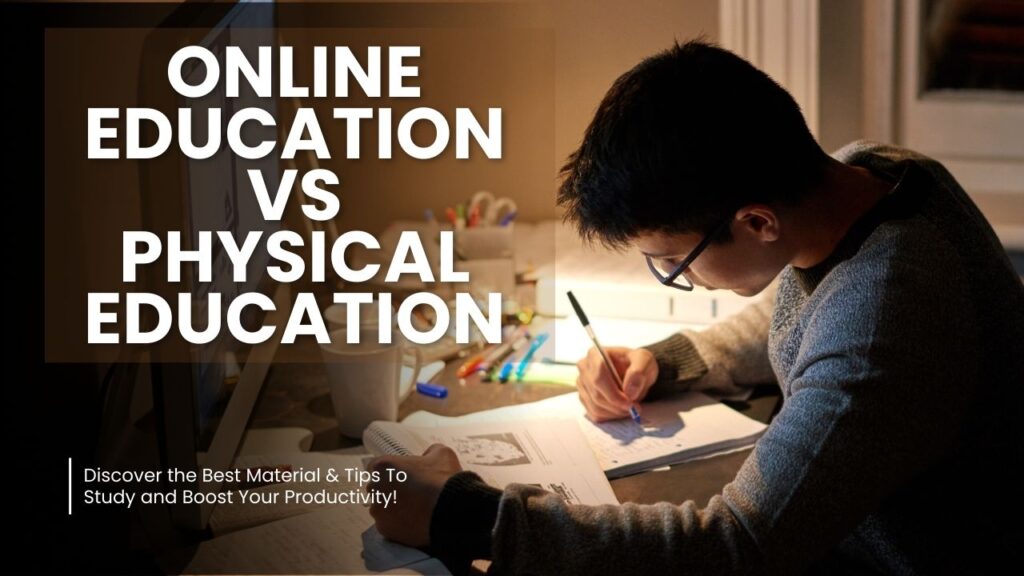Discover the crucial reasons why Pakistani parents increasingly need home tutor for their children’s success.
Explore personalized learning, overcoming educational challenges, and fostering holistic development.
The echoes of high-stakes exam pressures and expectations ripple through the psyche of every household in Pakistan. Parents across the Pakistan are taking the academic journey of their kids into close consideration as they navigate steeped layers of academic opportunities, hurdles and calls for excellence.
In this context, families count among the rising numbers who distinguish a vital support system outside of school, and this is the guided, wiser advice of a home tutor. The dialogue is beyond literally getting extra help; parents throughout Pakistan come to what is a need for home tutor so that they can work through educational complexity of the 21st century and help their children to do more than just keep up with their studies, but to flourish.
This article will touch on the clear reasons for this increased reliance on home tutoring in Pakistan with regard to educational challenges of the moment and the inexhaustible value of the personalized support of in-home.


Table of Contents
The Evolving Educational Landscape in Pakistan: Navigating Growing Challenges
Although the typical conception of schooling in Pakistan has some positive aspects, it is facing increasing pressures that require other academic support for students. Several factors in the changing education environment make some parents increasingly aware that they need to hire home tutors for their children educational advantages.
Challenges within the Traditional School System
The biggest challenge is the number of students in the classroom. Overcrowded classes in all public schools and many private schools impede a teacher’s ability to provide individual attention.
With dozens of students, sometimes more than fifty students in a class, teachers cannot expect to address the learning rate and style of their students. Consequently, students who struggle are forced to disengage unless the teacher intervenes, while many bright students may not be pushed sufficiently in class to achieve their potential.
For example, consider a student attempting to learn a challenging math topic; the busy classroom likely limits the opportunity for the student to ask clarifying questions or obtain the necessary explanations because time is usually limited and the teacher is focused on their teaching obligations to the entire class.
The curriculum itself can also be full of challenges. Although it is designed to be thorough, sometimes students do not progress through the material at the same rate. Some students may take more time to process information, while others may need to engage with the material through a different style instead of traditional lectures and textbook exercises.



The requirement of completing the curriculum during a specific timeframe can often leave students behind, and some gaps in information can create a snowball effect.
Lastly, the reliance on traditional methods of teaching to guarantee a minimum level of education, neglects the various ways in which children learn. Some students are visual learners, who may find it helpful to see something as a diagram or through a video, whereas other students are auditory learners, who learn by engaging in a discussion or through an explanation. Kinesthetic learners learn by doing.
A classroom, by necessity, must be generalized, meaning a significant number of students will be left without the ways to learn most effectively.
For these reasons parents increasingly require home tutoring, where students can experience a combination of teaching styles built around their learning profile.
The Impact of Recent Educational Disruptions
The ongoing global pandemic and shift to online learning demand that we examine the impact on Pakistan’s education system. Technology was a lifeline during the lockdowns, but the move to this mode was not necessarily smooth and its effects persist.
The most prominent consequence has been learning losses. The sudden and improvised transition to online learning came with challenges, such as limited internet access, limited devices to learn on, and some students may feel as though they weren’t being attended to or were unable to engage in class digitally.
For these reasons many learners, specifically those considered to be lower SES and those whose parents lack experience to support them in moving to on-line study, missed large chunks of learning that is fundamental to their current level of learning.
Now that schools are re-opening and classroom behaviours will revert to how things were prior to the pandemic, these gaps in learning and students engagement have become evident. Many students are unable to catch up and learn because school curriculum is still moving along forward without gaps.
Because of this, and for valid reasons, parents will still require home tutors to assist students closing gaps on missed learning and make up for what concepts they have missed.



Furthermore, the experience of online learning itself was also uneven. While some private schools were better able to organise and deliver online sessions in a more structured and engaging way than others, many, many schools struggled to make this transition.
The quality of online education varied, causing many parents to have concerns regarding the extent of their children’s education during this period. Moreover, without direct physical contact with teachers, children missed out on various social and emotional skills that form a solid part of the teaching profession.
Essentially, therefore, the new education landscape in Pakistan highlighted issues within the convention education system and compounded by disruption, highlighted a growing need for additional educational support.
Parents are beginning to realise that in order to equip their children for future success and emotional development, there is a certain consideration of home tutors where there is a personalised approach, and some degree of consideration is directed towards their individual learning and wider needs, rather than being just another “additional service“ or added extra!

Aga Khan University (AKU) Karachi : Shaping Future Leaders In Healthcare
The Benefits of Personalized Learning with Home Tutors: Tailoring Education for Success
The various challenges presented by the larger education system have contributed to the overall demand for home tutors in Pakistan due to the benefits of personalized learning.
Many parents have come to realize that in order to truly maximize their child’s academic potential, they require personalized approaches to learning.
This growing consensus emphasizes that when children are given personalized approaches to learning, they require home tutor who can provide individualized support to his or her learning needs.
Tailored Instruction to Individual Needs
Home tutoring provides the ability to go beyond a generic approach to education. An effective home tutor will determine the student’s strengths and weaknesses.
This determination is about more than just looking at grades; it is about how the child learns best, what they are good at, and what specific concepts or subjects are difficult for them.
For example, a tutor may determine that a student has obstacles with visual-spatial reasoning when it comes to math, yet a strong ability to communicate verbal explanations when it comes to science.
With this information, it is then possible for the tutor to prepare a learning plan detailing the learning goals, teaching methods, and resources that would best suit the personality, learning style, and pace of the student.
Unlike a classroom teacher, who, by design, must be responsive to the “average” student, a home tutor can be tailoring their teaching to the specific needs of the child. If the student is a visual learner, then the tutor may use diagrams, charts, and mind maps. If the student is an auditory learner, using discussion, speaking aloud, and audiovisual learning may be the best way. For kinesthetic learners, hands-on activities, experiments, and active learning may be the most effective.
By personalizing learning in this manner, it is easier to ensure the learning experience is both interesting and productive, and take into account the unique needs of the student.



Home tutoring also has particular benefits for students with specific learnings needs or challenges. For instance, children with both dyslexia and ADHD require strategies in teaching that are different from traditional classroom instruction; they may require more depth and patience beyond the surface aspects of learning.
A home tutor who is trained to deal with these challenges can step in to address these issues and provide well-designed interventions in a format, and in a supportive learning environment, that attends to the needs of the learner, something that would be impossible in a busy classroom.
This focused attention is one of the foremost reasons that parents of children with learning differences especially value home tutor.
For instance, think about a student who has consistently had difficulty with algebra. In the classroom context, the teacher has usually only explained the concept once and has felt compelled to go onto the next topic.
In contrast, the home tutor could have spent the time necessary to review the underlying principles, use different analogies, and work through numerous practice problems with the expectation that the student develop a clear understanding.
In addition to intervening with the topic of algebra, the home tutor could ascertain where exactly the student was experiencing difficulty: Was it solving linear equations vs. quadratic equations?
Enhanced Understanding and Concept Clarity
Home tutoring involves one-on-one interaction, and that enhances the environment for students asking questions or seeking clarification. In a class of students, it is often difficult to admit when a concept is understood for fear of being judged or slowing the class down.
A home tutor ensures there is a relative safety in communication when questions arise and understanding is immediately clarified. A home tutor develops that communication in a unique direct interaction allowing them to check in a student with early recognition of misunderstanding. The sooner a misunderstanding is detected, the earlier it can be addressed, potentially eliminating larger learning gaps.
Also, a home tutor has the freedom to take a deeper look at topics a student has space to explore at their pace. If a student was particularly interested in a subject matter, or struggled with a certain concept, the home tutor has time to clarify the misunderstanding, provide more examples, or connect the idea to other important ideas within similar subjects. The home tutor connects ideas in more depth, allowing for a better understanding of the subject matter rather than rote memorization and encouraging more critical thinking.
To ensure concept clarity around a student’s knowledge of fractions home tutors may use several teaching techniques which are not possible in a traditional classroom, such as applying the concept in a practical situation, using an analogy, relatable implications, interactive instruments, and games to explore abstract concepts.
A home tutor looks at the individual needs of the student and uses all of their resources in a variety of ways to help a student achieve understanding of the concept being studied.



As an example, when teaching a young student an understanding of fractions a home tutor may use visual representations in the instruction such as cutting a pizza into slices or drawing pictures to show parts and the whole; after the student has a clear understanding of the foundational concept, they may move forward onto more abstract representations.
By personalizing the way that instruction is delivered and the relevance, a home tutor is ensured that the individual is aware of the “why” and not just knows “how” to work out questions involving fractions as an example.
The above rationalization captures but does not limit that home tutors provide a highly personalized learning experience for students which is one of the primary reasons so many parents in Pakistan look for tutors for their children. Ultimate we know that personalized learning opportunities around a student’s individual learning needs, while also building their understanding, and further engaging in their learning in an enjoyable way, creates a powerful learning environment for the student involved.
Further, personalized, tailored learning experiences with attentive interaction and effective teaching will support a student to make sense of their concept understanding and make them a more connection to learning in general, thus positively assisting a students academic future and educational experiences as a whole.


Addressing Parental Concerns and Academic Pressures: Providing Targeted Support
Additionally, beyond the broader educational system’s challenges, Pakistani parents must face particular challenges related to academic high stakes, regarding their children. In this context, the realization that they need home tutor to help mitigate some of these pressures and provide targeted academic support, is now more commonplace.
Supporting Academic Performance and Exam Preparation
Specifically, parents are often concerned about their children’s academic performance, especially as they face significant milestones like board examinations (Matric and Inter) and entrance tests for higher studies.
These high stakes assessments typically represent the determining factors for students’ future academic and career pathways and in turn put pressures on both students and their families.
Home tutors can really help students by focusing on specific areas where they need support. A tutor who knows the subject well and understands the exam style can give instruction that matches what students need to learn and prepare for their tests.
The tutor will follow up with the student and help them create productive study techniques, learn key concepts, and understand the different examination presentation formats.
This particular kind of preparation is more than reviewing material; it is developing a game plan while managing your time, practicing previous exams to build confidence and familiarity with the exam format. Parents often need a home tutor with knowledge of the curriculum and examination boards to provide targeted preparation.
In addition, home tutors can regularly assess and provide detailed feedback on progress. This allows you to be kept up to date with your child’s strengths and weaknesses and what needs more focus.



After assessing the piers, tutors can adjust their teaching to ensure that the student is improving consistently and prepared for examinations. By providing this type of preparation, students have less anxiety and more of a sense of control during their academic undertaking.
For instance, think about the student preparing for their Matriculation exams. There would be a home tutor who specializes in science subjects. The home tutor could answer their questions with detailed explanations, assist them with complex numerical problems and test them under examination conditions, etc., in the home environment.
In addition, the home tutor could help the student identify typical traps to avoid, or successful strategies for how to answer different styles of questions. Overall, focused support like this would ultimately improve the student’s preparedness and improve their chances for success.
Bridging the Gap Between School and Home Learning
Learning doesn’t stop in school when the bell rings! Most parents will have situations arise where they need to reinforce concepts presented in school, or perhaps to just practice at home. In some situations, a parents knowledge may be limited and they are balancing their own busy schedule; this can often be a significant hurdle.
This is why a home tutor is essential to develop educational continuity between formal school and home-based learning. Parents invest hundreds of hours and their desire to hire a tutor to ensure the educational continuity of their child!
Under the home tutors’ guidance, they work with the school curriculum and are able to give additional instruction and exercises to bolster understanding of the subject.
The home tutor could also assist students with their assignments and clear up any misunderstanding from a lesson at school; they may also introduce new resources or perspectives to deepen learning.
This continuity of learning ensures that students are not simply taking in information in school but are interacting with the material and constructing a wealth of knowledge about a topic.
Parents often need the home tutor to act as the link between school learning and home learning.
In conclusion, a home tutor can help provide a more structured and consistent learning environment. By having scheduled tutoring sessions with clear learning goals, the tutor can immensely help the student develop great study habits and time management skills. This may be especially useful to a child who may struggle with organizing or being self-motivated.
Lastly, a home tutor can help establish better lines of communication between parents and educators. A tutor can gain valuable information about the students’ progress as it pertains to the school curriculum. This insight can be passed on to parents and even result in collaboration between teachers and tutors to promote the best overall learning experience for students. This aspect of a home tutor builds up the overall educational support system for the child.
Example: A student may be learning about the water cycle in science class. A home tutor could provide supports by helping the student make a visual diagram of the water cycle, and discuss real-life examples of evaporation and condensation, and even conduct simple experiments at home to demonstrate the cycle. Engaging in this way, with hands-on approach, reinforces understanding of the concept, while remaining far more enjoyable than reading through a textbook.
To sum up, academic pressures and parental worries about exam preparation and the failed expectation to connect the educator’s setting to the home setting are primary forces behind the growing demand for home tutors in Pakistan. These home tutors offer tailored, responsive support to ensure exam success and an integrated, effective learning experience, which helps ease parent anxieties and foster competence.

Online Education VS Physical Education In Pakistan
The Growing Need Home Tutor for Holistic Development: Nurturing Well-Rounded Individuals
Education as a whole – without a doubt includes learning at school, and the learning associated with school could be a primary focus when parents think about education.
However, more and more, the notion that we want to create well rounded people who are confident, who have positive learning habits, and who respect the learning process for the sake of the learning process is gaining traction. They now need to find home tutor who can begin to make this vision real.
Fostering Confidence and Motivation
Positive feedback from home tutors is vital and helps students build confidence and motivation.
In a classroom, students at the bottom of the class are discouraged learners if their difficulties are not being recognized.
Many students may be carrying shame.
It is a fully supported one-one-one home tutoring environment where learning is ongoing, positive feedback is constant; even when a student is attempting to master even the smallest of learning areas, they will receive encouragement and praise; and little accomplishments are a source of motivation.
Positive feedback builds self-esteem and belief in one’s ability to learn and that “I can improve”.
Increasingly, parents need home tutor who can create this vital sense of confidence. In addition, a tutor can provide a better, more relaxed learning space that may be less overwhelming than the classroom.



Students may be more willing to ask questions, voice their concerns, or take risks when they are working one-on-one with a tutor they believe in. Being in a more relaxed learning space can lower learning anxiety and promote a more favorable sentiment toward learning.
By employing lessons that reflect the interests and learning styles, a home tutor also makes it possible to personalize learning while allowing learning to be more fun and enjoyable in turn. When students find the learning process to be relevant and interesting, they are more likely to engage in the learning process and take more ownership of their learning.
Example: Where the student is initially intimidated by mathematics, they might become more confident as a home tutor works out mathematical problems by breaking down complex problems into smaller, manageable steps, and celebrates each step of the way.
The tutor’s calming demeanor can change the student’s perception of the subject, changing it from a form of anxiety to an area where they can achieve success. That boost of confidence can then transfer to either a different academic area, or even to outside activities.
Developing Essential Learning Skills
In addition to the specific content knowledge, a home tutor can also provide important learning skills that the student can take with them into college and their career. These skills often include critical thinking, problem solving, analytical skills, and self-directed study habits. Parents see they need a home tutor, so that they can help develop these rudimentary skills.
The tutor will foster critical thinking through open-ended questions and asking students to evaluate information from various points of views to support their developments of conclusions, rather than simply remembering facts. Problem solving abilities are developed through difficult exercises, and real-world scenarios, with the aid of a tutor. The tutor still prompts and encourages students, but rather than giving them answers, they encourage them to find the answers.
Likewise, analytical skills are developed through the level of detail that the tutor covers when exploring subjects with students. Students learn to break information down into pieces, draw parallels, and develop logical conclusions. A home tutor can give students ample occasions to develop these skills through discussion, debate, and research based projects.
One of the most powerful skills a home tutor can develop is the students’ ability to be an independent learner. Students can be empowered to take more ownership of their learning through a gradual process where the tutor helps students learn how to research, develop strategies for self-evaluation, and ultimately promotes learning autonomy. It is this empowerment that significantly contributes to parents’ perception of value in employing a home tutor.
Example: Where a home tutor is studying a historical event, for example, they might not just go over dates and names, but guide the student to analyse factors which contribute to the causes, discuss different interpretations of events, and explore the longer term implications of the event. In doing so, the home tutor is helping the student experience critical thinking and analysis far beyond reading and memorising content.
A home tutor may also help a student work through a science project, for example and show the student to come up with a question, make statement of a hypothesis, design practicing their own experiments, evaluate the data collected, and ultimately draw their own conclusions. This serves to promote research and problem solving skills and edge the student toward becoming an independent learner.
In conclusion, the changing perception regarding the importance of whole-child development, which includes factors such as confidence, actual motivation, and fundamental learning skills, is a large part of the increase in demand for home tutors in Pakistan. Parents realise that a tutor is pretty much essential to provide the individual support and guidance to help develop not just an academically strong student but a confident, capable and ultimately lifelong learner.


The Convenience and Accessibility of Home Tutoring in Pakistan Now: Adapting to Modern Lifestyles
Convenience and accessibility, which plays a primary role in decision making in today’s fast-paced world, are also part of the game with respect to education. The fact that more and more Pakistani parents realize their children need home tutor is thanks in part to the comfort and accessibility of available tutoring options.
Flexibility in Scheduling and Location
A true and powerful benefit of home tutoring is the flexible scheduling plan. You don’t have the constraints of school hours or a location for a tutoring center to have to go to; simply schedule home tutoring sessions that fit into the schedule of you or your children. This provides for extreme flexibility for the parents.
Home tutors allow parents to schedule sessions at the most convenient times, whether that’s after school, on weekends or evenings. Sache scheduling can relieve the stress of rigid scheduling and turn learning into just another part of a busy family’s lifestyle more quickly. This flexibility is a reflection of why parents feel the need to use a tutor to make everything practical.
In addition, the location of tutoring sessions can provide exceptional convenience. Learning occurs in the student’s home, which is the most familiar, comforting space for the student. There is no wasted travel time and no costs or logistics associated with getting to a separate learning center.
Students are able to learn in a space where they feel safe and focused. The learning experience could be more productive. For parents who have more than one child or busy work schedules, the convenience of a tutor coming to their home is a huge plus.
Example: A family with two parents who both work and have kids involved in extracurricular activities may be challenged to follow a rigid schedule for tutoring at an external center. With a home tutor, they can schedule the tutor for certain days or times that suit the family’s schedule, and allows their child to receive adequate academic support without disrupting the family routine.
The Rise of Online Home Tutoring Platforms
The introduction and expansion of online home tutoring services have made education even more accessible in Pakistan. These services have transcended geographical constraints, enabling students to connect with tutors with qualifications throughout the country and internationally.
This bigger pool of tutors enables parents to find specialists in topics outside of the norm, or tutors that rely on particular teaching methodologies that may not be common in their communities. This improved accessibility is an important aspect of why parents have other options for home tutor where location may not be a consideration.
Online tutoring can provide superior flexibility compared to traditional in-person tutoring, as there may be more options in scheduling. Sessions can occur at times that work for everyone, regardless of location. This is incredibly useful for families in more remote parts of the country where access to qualified local tutors has become a problem.



Additionally, many online tutoring services use technology as a tool to facilitate a more interactive and engaging learning experience. The use of virtual whiteboards, screen sharing, interactive quizzes, and video all help support and cater to a variety of learning styles. Learning online is more attractive to students who are digitally inclined and the ability to be engaged via visual and interactive media can also motivate students in their learning process.
A student living in a smaller city in Pakistan might struggle to find a tutor for advanced calculus, but thanks to online tutoring platforms, they can connect with a skilled tutor from a bigger city or even another country all from home.
Basically, the growing ease and availability of both in-person and online tutoring is a big reason why more people in Pakistan are choosing it. With flexible schedules and the ability to connect with tutors from anywhere, busy families can give their kids the personalized help they need. This makes it easier for parents to support their children’s education in today’s fast-paced world.

Unlocking Knowledge : The Rise Of Online Education In Pakistan In 2025
Addressing Potential Concerns and Misconceptions about Home Tutoring: Ensuring Quality and Value
While the advantages of home tutoring are becoming increasingly clear, some parents in Pakistan could have concerns or misconceptions about the affordability and feasibility of finding a dependable tutor. Emphasizing these points is important as most people think twice regarding whether the perceived necessity of hiring a tutor at home outweighs the long-term benefits and options available to parents and their children.
Cost Considerations and Finding Affordable Options
For many parents considering home tutoring, one issue that stands out is the perceived expenditure associated with the service. Budgets can be a large factor for many families; however, while one-on-one tutoring may require an investment, it is imperative to view this expenditure in the context of a child’s education and future. Also, there are different ways to obtain home tutoring at a lower cost that provide access to families that need home tutor assistance.
The pricing of tutoring should be compared in terms of different measures, and can vary considerably as the tutor’s qualifications, experience, the subject-studied, and the number of hours and sessions of tutoring will be different from tutor to tutor. Other agencies can be looked into which will likely have variations in pricing. Some tutors have packages available, or a discount for months of tutoring; this may be an option for many parents.

Free English Language MCQs To Build Confidence
Parents can also opt for a cheaper option for home tutoring. Group or team tutoring allows two or three students from the same class or similar abilities to share a tutor. This will lower the cost per child. Additionally, the emergence of online tutoring platforms has already lowered the prices for tutoring with less overhead for tutors, with more competitive prices. Parents in search of some help at home but on a budget are likely to find quality tutors available online at lower prices.
Ultimately, it should be seen as an investment – not just a financial cost but a step toward the child’s academic – and personal – success. Although the price may seem high, the assurance of improved grades, a new sense of confidence, and a solid base for future academic success, will outweigh the cost for some families.
Example: Rather than splitting the cost of a tutor for only one-on-one lessons, two parents in close physical proximity with children struggling in mathematics could just hire the tutor for small group lessons. The students would both get the necessary attention, while the parents would pay less per child. Similarly, comparing online tutoring styles or platforms to find a quality tutor may reveal hourly rates that are competitive with anything available closer to home/in-person.
Ensuring Quality and Finding the Right Tutor
Another legitimate concern for moms and dads is the quality of instruction and finding a tutor who is knowledgeable about their subject area and who fits their child’s learning style and personality. Understanding they needed a home tutor is just the first step; the next step is to find the right tutor.
When it comes to quality, parents should consider checking the credentials and background of potential tutors. Educational background, certification training, and success with students are all things parents should consider. A good tutoring agency will perform background checks and confirm the qualifications of their tutors. Many online platforms provide ratings and reviews, and can provide some insight from parents about experiences they have had with specific tutors.
Trial sessions, if provided, could also be a useful way to examine a tutor’s teaching style and relationship with the student. Watching how the child interacts with the tutor, how the tutor explains things and adapts their style for the student can help parents determine if the tutor is a good fit. Parents also need to be considering how well the student is having a relationship with the tutor; a strong relationship, with trust and understanding, is critical to effective learning.
Parents should clearly communicate their expectations about the tutor and the learning needs of their child. An effective tutor will take the initiative in knowing these needs and implementing them as necessary. Parents and tutors collaborating and co-creating are essential to the effectiveness of the tutorial sessions that ultimately lead to goals for the student.
Example: When looking for a home tutor for their child who struggles with science, parents may look for a tutor with a degree in a science-related area, and experience in teaching curriculum relevant to that area of science. They may also consider comments from other parents who have worked with the tutor, which provides valuable information about practical effectiveness and style.
The option of a trial session allows the parent and child to meet the tutor for consideration and engage in interaction to allow for the determination of any overlap in communication and preferred learning styles.
To wrap it up, parents should think about the costs and the search for a good tutor. There are plenty of affordable choices out there, and some smart strategies to find quality help. By looking into different tutoring options and making sure the tutor is a good match for their child, parents can tackle these worries and enjoy the real advantages of one-on-one learning.

The Future Of Education In Pakistan : How I Experienced the Digital E-Learning Boom Firsthand
Conclusion
In summary, the convergence of modern education challenges, the performance benefits of personalized learning, the pursuit of academic success, the benefits of whole child development, and the convenience and accessibility of tutoring services creates a huge and growing need for home tutor for parents in Pakistan today.
The traditional education system serves a foundational purpose but most times needs support to give every child the opportunity to reach their full academic and personal potential.
The shortcomings of large classrooms and standardized instruction lend importance to the ability personalized learning has to differentiate based on student learning styles and speed to learn. The ongoing fallout of education disruptions emphasizes the urgency for personalized strategies to intervene and support rounding out learning gaps to provide strong footing into the letting education foundations.
Parents are also aware that to navigate complexities like distancing learning, and to ensure academic progress in a supportive manner, they need home tutor to provide focused and personalized support and direction.
Home tutoring goes beyond just boosting grades. It helps students really understand the material, boosts their confidence and motivation, and develops useful skills for lifelong learning. Tutors can also ease parents’ worries about academic pressure and help create a supportive learning environment. They often become key partners in a student’s educational journey.
Additionally; the greatly improved accessibility and convenience of both in-person and online tutoring options have made this personalized support much more reachable for families around Pakistan. The added flexibility of tutoring in terms of scheduling and location, coupled with the reach and ability of online platforms is democratizing access to tutoring services.
It’s understandable for concerns around costs and finding a good tutor are valid concerns, however, you can help ensure that your family effectively takes advantage of all the options available to you and prioritize quality and fit when finding a tutor to alleviate these concerns.
Ultimately, home tutoring is an investment into a child’s future while providing them the personalized support they require to thrive in Pakistan’s fluid and increasingly competitive educational environment. The evolution of education shows that the importance of home tutors in supporting individual guidance and supporting holistic development will be an even bigger issue for Pakistan’s next generation moving forward.


FAQs About Need Home Tutor In Pakistan
What are the reasons home tutors are needed more now in Pakistan?
There are many reasons we are now seeing a heightened need for home tutor in Pakistan. Some of these reasons come from problems in the schooling system like oversized classrooms, compounded by the effects of learning loss due to previous disruption and closures in education, the demand for personalized learning based on the needs of learners, and the pressure to have good exam results.
How much does a home tutor normally charge in Pakistan?
The amount charged by a home tutor in Pakistan can vary substantially depending on a number of factors like the tutor’s qualifications and work experience, which subject is being taught, the level of learning that is required, and the frequency and length of the home tutoring, and so it is best to shop around with different tutors and agencies to identify the best price that matches your budget, it might also be possible to find a cheaper online tutoring option.
How do I find a good, reliable home tutor in Pakistan?
Home tutors can be located by a number of different methods. Recommendations from schools or a friend who has used a tutor are one method. Another method is to use tutoring agencies or an online tutor service. Always check the qualifications, experience, and references of your tutor. You could, however, request an initial trial session to help see if the tutor is a good fit for your child’s learning style and personality.
How have tutors helped with exam preparation?
Home tutors can help with exam preparation in a number of different ways, including reviewing a students syllabus, covering the essential elements before the exam, working through past papers, teaching effective revision techniques, or practice affirmation with a mock exam. By solely focusing on exam preparation a tutor can make a measurable and positive impact, especially with a students confidence and performance.
Do the provide tutoring services just focused to academics?
Academic Improvement is often one of the goals with a home tutor, but a good home tutor can and should be a major contributor to a students holistic development through increased confidence, improved learning skills, and a more favorable view of education.
The Article You May Like
Pakistan Educational Endowment Fund : Transforming Lives Through Education
University Of Agriculture Faisalabad : Pioneering Excellence In Agricultural Education And Research
